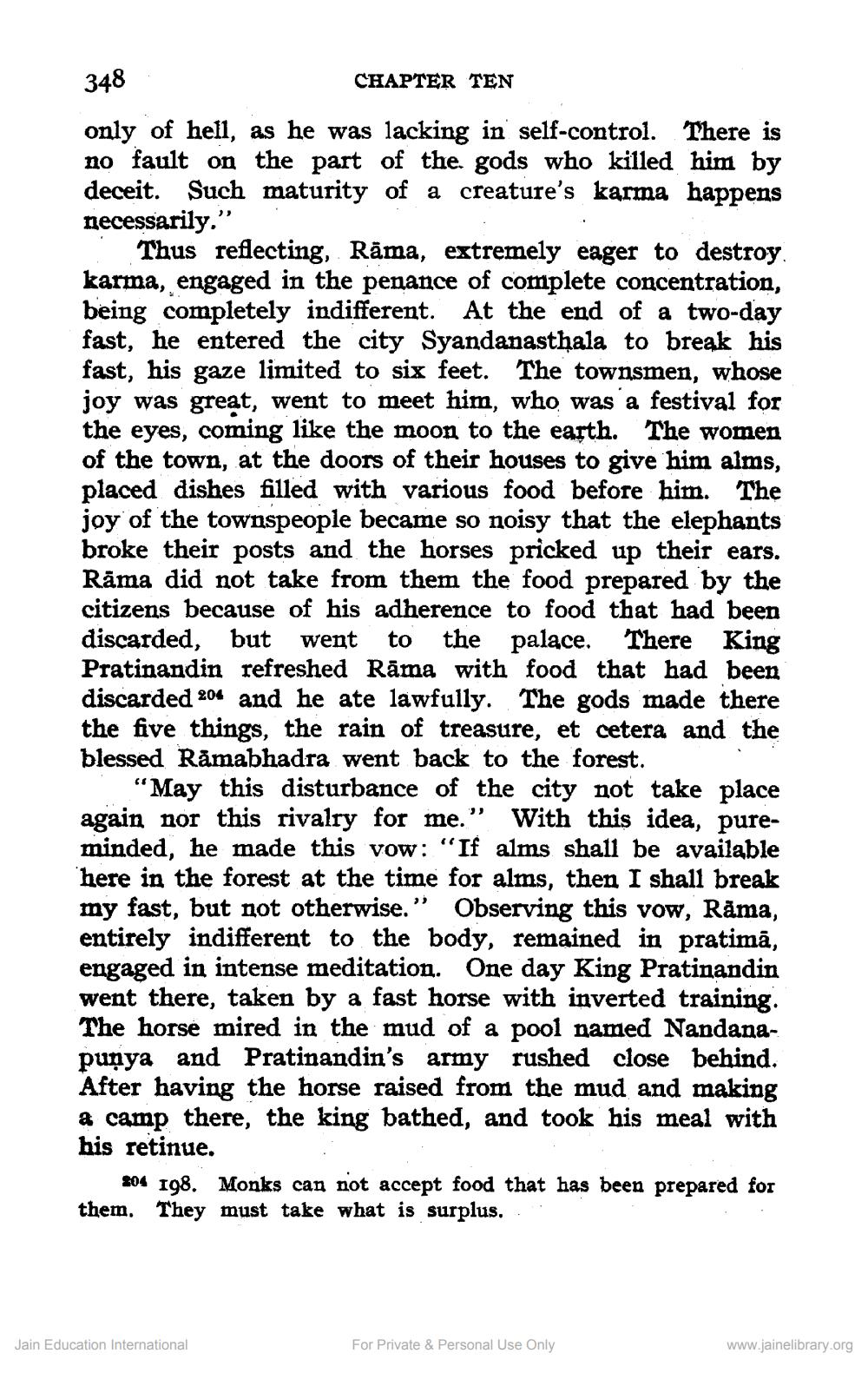________________
348
only of hell, as he was lacking in self-control. There is no fault on the part of the gods who killed him by deceit. Such maturity of a creature's karma happens necessarily."
Thus reflecting, Rama, extremely eager to destroy. karma, engaged in the penance of complete concentration, being completely indifferent. At the end of a two-day fast, he entered the city Syandanasthala to break his fast, his gaze limited to six feet. The townsmen, whose joy was great, went to meet him, who was a festival for the eyes, coming like the moon to the earth. The women of the town, at the doors of their houses to give him alms, placed dishes filled with various food before him. The joy of the townspeople became so noisy that the elephants broke their posts and the horses pricked up their ears. Rāma did not take from them the food prepared by the citizens because of his adherence to food that had been
CHAPTER TEN
discarded, but went to the palace. There King
Pratinandin refreshed Rama with food that had been discarded 204 and he ate lawfully. The gods made there the five things, the rain of treasure, et cetera and the blessed Råmabhadra went back to the forest.
"May this disturbance of the city not take place again nor this rivalry for me." With this idea, pureminded, he made this vow: "If alms shall be available here in the forest at the time for alms, then I shall break my fast, but not otherwise." Observing this vow, Rāma, entirely indifferent to the body, remained in pratimā, engaged in intense meditation. One day King Pratinandin went there, taken by a fast horse with inverted training. The horse mired in the mud of a pool named Nandanapunya and Pratinandin's army rushed close behind. After having the horse raised from the mud and making a camp there, the king bathed, and took his meal with his retinue.
204 198. Monks can not accept food that has been prepared for them. They must take what is surplus.
Jain Education International
For Private & Personal Use Only
www.jainelibrary.org




